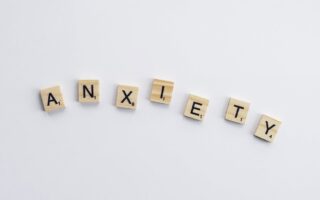This post provides you with practical strategies to manage your anxiety effectively. You are not alone in your feelings of anxiety, and by implementing these ten tips, you can regain control over your emotions and enhance your overall well-being. From breathing techniques to mindfulness practices, each tip is designed to empower you in navigating your anxious moments. So, let’s investigate these actionable steps that can help you find relief and build resilience against anxiety.

Understanding Anxiety
The term anxiety encompasses a range of feelings, from mild unease to intense worry. It is a natural response to stress and can be beneficial, as it alerts you to dangers or challenges that require your attention. However, when anxiety becomes overwhelming or persistent, it can interfere with your daily life and overall well-being. Understanding what anxiety is and how it manifests in your life is the first step toward effectively managing it.
What is Anxiety?
Understanding anxiety involves recognizing it as a mental health condition characterized by excessive worry, fear, or apprehension. It can manifest physically, resulting in symptoms such as increased heart rate, sweating, and restlessness. Anxiety disorders can vary widely, with conditions ranging from generalized anxiety disorder and panic disorder to social anxiety and phobias. Each type has distinctive features and triggers, but all share the commonality of heightened feelings of unease.
Common Triggers and Factors
Anxiety can arise from various triggers and incidents, often linked to your personal experiences or environment. Common triggers may include stressful life events such as a job loss, relationship issues, or significant changes in your life. Additionally, factors like genetics, brain chemistry, and personality traits can contribute to your anxiety levels. Some typical triggers to consider are:
- Everyday stressors, including work deadlines and personal relationships
- Traumatic experiences from the past
- Health concerns or chronic medical conditions
- Substance use or withdrawal
- Social situations where you feel pressure to perform
Anxiety can also stem from environmental factors that may seem unrelated to your emotions. It could be the challenges of your job, socioeconomic pressures, or even social media influences. Be aware of how these elements interact with your feelings and behaviors. Recognizing these triggers can empower you to address them proactively and manage your anxiety more effectively.
- Financial issues and their related stressors
- Unrealistic expectations from yourself or others
- Inadequate coping mechanisms for stress
- Being in unfamiliar or uncomfortable environments
- Overstimulation from technology and information overload
The journey toward understanding anxiety does not end here. By becoming aware of how various triggers and factors influence your state of mind, you can take active steps toward coping strategies that improve your emotional health. Recognizing these triggers in your life will be instrumental in fostering a sense of control and reducing anxiety.
How to Identify Your Anxiety Types
You may find it helpful to understand that anxiety can manifest in various forms. By recognizing the different types of anxiety, you can better manage your symptoms and seek appropriate support. Start by examining your feelings and responses in various situations. Here are some common anxiety types that might resonate with you:
- Generalized Anxiety Disorder
- Social Anxiety Disorder
- Specific Phobias
- Panic Disorder
- Obsessive-Compulsive Disorder (OCD)
Knowing these anxiety types can assist you in pinpointing which one you might be experiencing, paving the way for more targeted strategies for coping and treatment.
| Anxiety Type | Description |
|---|---|
| Generalized Anxiety Disorder | Excessive worrying about everyday problems |
| Social Anxiety Disorder | Intense fear of social situations |
| Specific Phobias | Fear of specific objects or situations |
| Panic Disorder | Recurrent panic attacks that cause intense fear |
| Obsessive-Compulsive Disorder (OCD) | Recurrent, unwanted thoughts and repetitive behaviors |
Recognizing Symptoms
There’s a range of symptoms that can help you identify what type of anxiety you might be dealing with. These symptoms can vary greatly between individuals, meaning that your experience may not be the same as someone else’s. Pay attention to your physical and emotional responses in different situations. Common symptoms include:
- Increased heart rate
- Restlessness or feeling on edge
- Difficulty concentrating
- Sleep disturbances
- Irritability
Knowing how these symptoms affect you can help differentiate your specific anxiety type, leading to more effective coping strategies.
Differentiating Between Anxiety Types
Types of anxiety can often overlap, making it tricky to pinpoint exactly what you’re experiencing. Understanding the nuances of each type can be important in recognizing patterns in your anxiety. Some indicators to differentiate between them include:
- Context of anxiety (situational vs. persistent)
- Physical reactions to stressors
- Duration and frequency of symptoms
- Specific triggers
- Impact on daily life
Knowing how these factors manifest in your life can guide you in effectively addressing your anxiety. To further aid your understanding, consider the following breakdown of anxiety types:
| Anxiety Type | Key Characteristics |
|---|---|
| Generalized Anxiety Disorder | Chronic worry affecting daily activities |
| Social Anxiety Disorder | Fear of being judged in social settings |
| Specific Phobias | Intense fear that leads to avoidance |
| Panic Disorder | Physical symptoms that mimic heart attack |
| Obsessive-Compulsive Disorder (OCD) | Compulsions to relieve intrusive thoughts |
To conclude, understanding the intricacies of your anxiety can lead to better management. By identifying which type of anxiety you are facing, you equip yourself with the tools to mitigate its effects and seek the most appropriate help. Knowing how your anxiety manifests is the first step toward finding effective solutions that work for you.
Tips to Manage Anxiety
If you are feeling overwhelmed by anxiety, implementing effective coping strategies can help you regain control over your emotions and foster a sense of calm. Here are some practical tips to assist you in managing anxiety:
- Practice deep breathing exercises.
- Incorporate mindfulness and meditation into your daily routine.
- Engage in regular physical activity.
- Establish consistent routines.
- Seek support from friends, family, or professionals.
The journey to managing anxiety can be a gradual process, but with these tips at your disposal, you are better equipped to face your challenges.
Breathing Techniques
With simple breathing techniques, you can significantly alleviate feelings of anxiety in your daily life. Try inhaling deeply through your nose for a count of four, holding your breath for four counts, and then slowly exhaling through your mouth for a count of six. This method, known as diaphragmatic breathing, engages your body’s parasympathetic nervous system, promoting relaxation and comfort.
Additionally, focus on your breath and create a mental image of calmness during stressful moments. This practice can help anchor your thoughts and divert them from anxiety-inducing triggers. Consistently practicing deep breathing can lead to improved emotional regulation.
Mindfulness and Meditation
Tips to incorporate mindfulness and meditation into your life can lead to profound changes in how you deal with anxiety. Mindfulness encourages you to stay present and fully engaged in the moment, reducing the tendency to dwell on past worries or future uncertainties. Consider setting aside just a few minutes each day for mindfulness practices, such as guided meditation, which can foster a sense of inner peace and clarity.
Furthermore, incorporating mindful activities into your routine, like mindful walking or eating, can enhance your awareness and help ground you during moments of anxiety. By focusing on your senses and experiences, you can create a buffer against overwhelming feelings.
Another effective approach to mindfulness is journaling. By writing down your thoughts and emotions, you can process your feelings and develop a deeper understanding of your triggers, enabling you to cope more effectively when anxiety arises.
Physical Activity
For those experiencing anxiety, physical activity serves as a powerful outlet for stress relief. Engaging in regular exercise, such as walking, running, or yoga, not only improves your physical health but also releases endorphins, which function as natural mood lifters. Aim for at least 30 minutes of physical activity most days of the week to see significant benefits.
Moreover, finding activities that you genuinely enjoy can transform exercise into a source of happiness rather than a chore. Whether it’s dancing, swimming, or hiking, make an effort to incorporate these movements into your routine, as they can dramatically improve your overall well-being.
Activity is another fantastic way to distract yourself from anxiety. It gives your mind a break while offering a sense of accomplishment after each session, reinforcing your ability to cope with daily challenges.
Establishing Routines
There’s power in establishing routines when managing anxiety. Creating a structured daily schedule can provide you with predictability, which can reduce feelings of stress and anxiety. By having a set plan, your mind can focus on completing tasks rather than worrying about what comes next.
Additionally, integrating regular routines for sleep, meals, and activities can enhance your sense of stability. Consistency is key—over time, a well-established routine can create a sense of normalcy in your life, further alleviating anxiety.
This structured approach helps you cultivate better work-life balance and encourages healthy habits, which play a vital role in maintaining emotional well-being.
Seeking Support
Little things often make a significant difference when it comes to managing anxiety. Don’t hesitate to reach out for support from friends, family, or professionals who can provide guidance and understanding. Building a supportive network can not only lighten your load but also normalize your experiences, helping you feel less isolated during tough times.
Engaging in support groups or therapy can offer validation for what you’re experiencing, as well as introduce you to coping techniques shared by others facing similar challenges.
Techniques such as having open conversations with loved ones about your anxiety can help mitigate feelings of loneliness. Establishing a healthy dialogue can foster a sense of connection and understanding, making it easier to navigate your anxiety with support from those who care about you.

How to Create a Positive Environment
All environments can influence your mood and mental state, which is why cultivating a positive space is important for managing anxiety. Your surroundings should promote a sense of tranquility and comfort, allowing you to feel safe and at ease. By making intentional choices about your environment, you can enhance your overall wellbeing and create a haven from life’s stresses.
Decluttering Your Space
With each item in your space, consider its impact on your mental health. A cluttered environment can contribute to feelings of overwhelm and anxiety, making it more challenging to focus and relax. By actively decluttering your home or workspace, you create a cleaner and more organized atmosphere that promotes clarity and calmness. Take time to assess your belongings, determining which items you truly need and which can be given away or discarded. This process not only clears physical space but also helps clear mental space, allowing you to breathe easier.
Using Calming Colors and Scents
Scents and colors play a significant role in setting the tone of your environment. Surrounding yourself with calming colors, such as soft blues or gentle greens, can create a serene atmosphere that soothes your anxious mind. Similarly, incorporating calming scents like lavender, chamomile, or sandalwood can significantly enhance your mood and relaxation levels. Consider painting your walls in soothing hues or adding decorative elements that feature these colors, along with diffusing important oils to maximize the relaxation potential of your space.
It is beneficial to explore how both colors and scents interact to create an inviting ambiance. For instance, you might choose to paint a room in pastel shades and introduce a scent diffuser filled with relaxation-enhancing oils. This combination can amplify feelings of peace and stability, helping you to calm your nerves whenever you step into the space. Additionally, small touches like scented candles or flowers can add a refreshing element to your environment and contribute to an overall sense of well-being.
How to Develop Healthy Coping Strategies
Now that you acknowledge your anxiety, it’s important to take proactive steps in developing healthy coping strategies. These strategies can help you manage your anxiety more effectively and improve your overall well-being. By incorporating a variety of techniques into your routine, you can create a personalized toolkit to navigate those anxious moments with greater ease.
Journaling for Reflection
Any time you find yourself overwhelmed, consider turning to journaling as a powerful tool for reflection. Writing down your thoughts and feelings not only helps you clarify what’s going on in your mind but also allows you to identify patterns or triggers in your anxiety. You can make journaling a daily practice, free from any judgment—let your thoughts flow onto the page. Over time, you may find it easier to process your emotions and gain insight into the underlying causes of your anxiety.
Engaging in Hobbies
The act of engaging in hobbies is an excellent way to divert your mind from anxiety and focus on something that brings you joy. Whether it’s painting, dancing, gardening, or reading, dedicating time to activities you love can help reduce stress and promote relaxation. Engaging in a hobby allows you to immerse yourself in something positive, sparking creativity and providing a break from your daily routines that may contribute to your anxiety.
It can also foster a sense of accomplishment and boost your self-esteem. When you commit to a hobby, you’re actively investing in your own happiness and mental health. Not only does this act as a distraction from anxious thoughts, but it also provides an outlet for expression and exploration, contributing to a healthier coping mechanism over time.
How to Utilize Professional Help
Once again, addressing anxiety can sometimes feel overwhelming, but seeking professional help can be a significant step in managing your symptoms effectively. Professionals are equipped with the skills and knowledge to guide you through your anxiety challenges. They can offer tailored strategies and support, making your journey to understanding and coping with anxiety smoother and more manageable. It’s important to recognize that reaching out for help is a sign of strength, and taking this step may lead to a better quality of life.
Therapy Options
There’s a variety of therapy options available that can assist you in dealing with anxiety. Cognitive Behavioral Therapy (CBT) is one of the most researched forms and focuses on identifying and changing negative thought patterns that contribute to anxiety. Other approaches such as mindfulness-based therapy and exposure therapy can also be beneficial, depending on your individual needs. Engaging in one of these therapeutic modalities can provide you with tools to practice coping strategies in real-life situations, giving you greater control over your anxiety.
Medication Considerations
While therapy can be incredibly effective, some individuals may find that incorporating medication puts them on a faster track toward managing anxiety. Medications such as antidepressants and anti-anxiety drugs can help stabilize your mood and reduce the intensity of anxiety symptoms. It’s necessary to consult with a healthcare professional who can evaluate your specific situation and determine if medication is appropriate for you. This way, you can be informed of both the benefits and potential side effects, allowing you to make an educated decision that aligns with your treatment goals.
The decision to pursue medication is a personal one and can depend on the severity of your anxiety and how well you’re responding to therapy. It is vital to maintain open communication with your healthcare provider, discussing any concerns or side effects you may experience. This collaboration can help ensure that you receive the most effective treatment possible and allow you to make adjustments as needed. Ultimately, combining medication with therapy can offer a comprehensive approach to managing your anxiety for a happier and healthier life.
To wrap up
So, managing anxiety is a journey that requires patience and practice. By incorporating the 10 tips discussed, you can empower yourself to navigate through anxious moments more effectively. Whether it’s through mindfulness, physical activity, or seeking support from friends and professionals, each strategy serves to reinforce your resilience and promote better mental health. The key is to find what works best for you and to commit to consistent practice, as this will lead to lasting improvement in how you cope with anxiety.
As you explore the various techniques and tools available, it’s important to be kind to yourself. Anxiety may not disappear overnight, but by taking proactive steps and prioritizing your well-being, you will gradually build a stronger foundation for managing it. Embrace the support of those around you and trust that you’re not alone on this path. You have the strength to face your anxiety head-on, and with time and effort, you can cultivate a more peaceful and balanced life.















